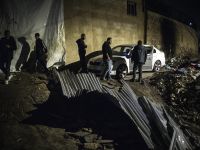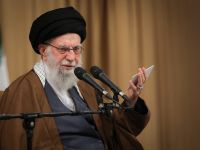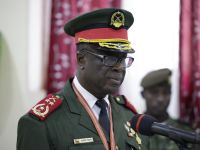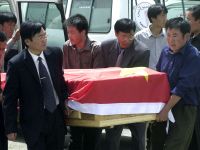Turkey's foreign minister said Tuesday that his country would allow the United States to use military bases in the country for a strike against Iraq, but his ministry later said that his comments were not a firm commitment by Turkey.
Turkey's Foreign Minister Yasar Yakis' comments came as U.S. Deputy Defense Secretary Paul Wolfowitz was in the country lobbying for Turkey's support of an operation against Iraq.
But several hours after the minister spoke, the Foreign Ministry issued a clarification that he was speaking of "possibilities," not promises, AP reported.
"The fact that he has referred to these possibilities does not mean a commitment on the part of Turkey, because these possibilities have not been the subject of discussion with any country," the ministry said in a statement.
Turkish officials have previously refused to publicly commit as to whether they would allow the United States to use bases in a strike against Iraq.
Yakis said Turkey would allow the bases' use — but only if the United Nations approved military action. "There should not be left any stone unturned before resorting to a military solution," Yakis told reporters. "But if it comes to that, then of course, we will cooperate with the United States because it's a big ally and we have excellent relations with the United States."
When asked by a reporter to define cooperation, Yakis said, "the opening of air space, first of all, and the utilization of facilities in Turkey."
"The military authorities of the two countries are consulting on the assumption that such a cooperation may be necessary one day," Yakis added.
Yakis' comments were widely broadcast on Turkish media. The Foreign Ministry later issued its statement "in order to bring clarity to this news."
When asked if the United States would have to seek a new U.N. resolution to use force against Iraq, Yakis said: "Yes, yes, yes. The Turkish understanding (is) that the present resolution, 1441, does not allow automatic resorting to armed intervention."
Although the United States is looking at the possibility of sending ground troops into northern Iraq, Yakis said Turkey would have trouble supporting a large U.S. military presence.
"It may be difficult to see tens of thousands of American forces being transported through Turkish territory into Iraq or being stationed or deployed somewhere in Turkey and their carrying out strikes inside Iraq," he said.
Wolfowitz did not answer directly earlier when asked if the United States had asked for permission to base U.S. troops in Turkey during a war. "Military and diplomatic planning must proceed because Saddam Hussein must see that we are serious," he said.
Meanwhile, U.N. Secretary-General Kofi Annan said Tuesday that Iraq's cooperation with weapons inspectors has been good so far, and he hailed the inspectors for using their authority to visit presidential palaces.
"There is a good indication that the Iraqis are cooperating, but this is only the beginning," Annan said. "They have to sustain the cooperation and effort ... and we will have to wait for the report of the inspectors."
Chief U.N. weapons inspector Hans Blix said Tuesday that Iraq hasn't obstructed his teams but that Baghdad must provide "good explanations" for moving some equipment.
"I think we have started in the manner we expected and we have not had any impediments in the visits of plants," he told AP.
"Of course over a period of time, equipment can be moved but there must be some good explanations for it, and I'm sure that our people will inquire why was it moved and where was it moved," Blix said.
"If it were to be moved for some illicit purpose, then of course it would be more serious. But in the first case there was a fermenter which had been moved, and they showed where it was. And in other cases I hope that there are good explanations, but this has to be found out." (Albawaba.com)
© 2002 Al Bawaba (www.albawaba.com)







